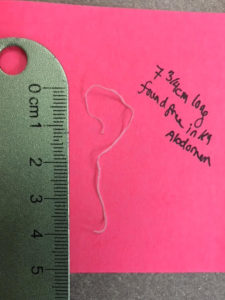Heartworm disease is a serious, potentially life-threatening condition that can affect dogs, cats, and some other species of mammal. It is caused by parasitic worms that live in the heart, lungs, and associated blood vessels of infected animals. Left untreated, heartworm disease can cause serious health conditions including lung disease, heart failure, and organ damage.
Causes of Heartworm Disease
Heartworm disease is spread through mosquito bites. Heartworms living in an infected animal produce microscopic offspring which circulate in the blood. When a mosquito bites an infected animal, the immature worms enter the mosquito’s body and mature into larvae. The larvae can then be transmitted to another animal that is bitten by the mosquito.
Symptoms of Heartworm Disease
The symptoms of heartworm disease will vary depending on the severity of the condition. In the early stages of heartworm disease, symptoms can be very difficult to detect. As the condition progresses, pets may acquire a cough, develop respiratory issues, or display other symptoms such as exercise intolerance, weight loss, fatigue, or loss of appetite.
Diagnosis of Heartworm Disease
If your veterinarian suspects that your pet has heartworm disease, blood tests will be performed to check for evidence of adult worms or microfilaria (immature worms). Chest X-rays may also be used to assess the condition of the heart and lungs.
Treatment of Heartworm Disease
Treatment of heartworm disease will depend on how advanced the condition is. If the infection is detected early enough, medication can be administered to kill parasites before they cause significant damage to your pet’s heart, lungs, or other organs. Pets will usually need to be hospitalized during treatment as heartworm medication carries the risk of adverse side effects.
For pets with more advanced heartworm disease, treatment can be complex and expensive. In the most severe cases, surgical removal of the parasites may be recommended to prevent serious health complications such as congestive heart failure.
All pets treated for heartworm disease will require follow up testing to ensure that the infection is no longer present. Additional treatment may also be needed in some cases.
Following treatment, your veterinarian may prescribe medications to treat symptoms such as pain and inflammation. Always follow treatment advice closely, and restrict exercise while your pet recovers from the condition.
Prevention of Heartworm Disease
Heartworm disease is a serious and progressive condition that can cause lasting damage. Unfortunately, despite treatment, the prognosis for pets in advanced stages of the disease is often poor. For this reason, it is important to take measures to prevent the condition and have your veterinarian test your pet regularly for heartworm disease.
The American Heartworm Society recommends annual testing and monthly heartworm prevention medication for cats and dogs. Please ask your veterinarian for more information about heartworm testing and preventative medication to protect your pet.


